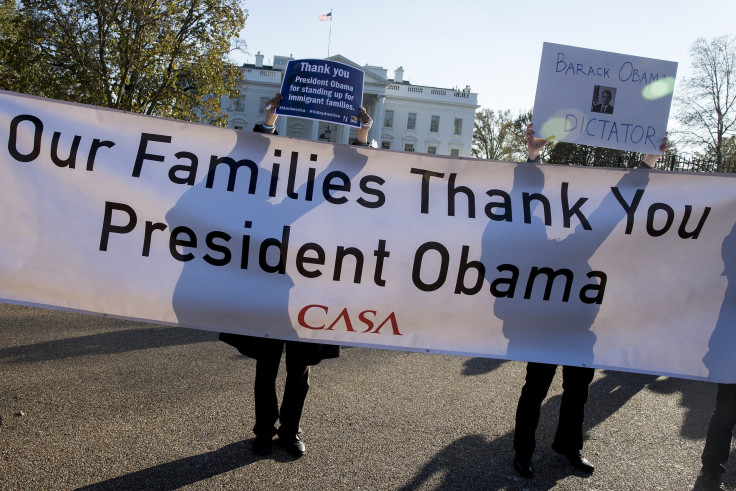Immigration Reform 2014: Deportation Relief Will Also Lead To Educational Opportunities, Financial Aid, Depending On State

Millions of undocumented immigrants will be able to apply for deportation relief and work authorization in just a matter of months under executive action announced by President Obama this week. In many cases, that relief will also come in the form of other benefits, like health care and educational opportunities -- but the extent of those benefits will depend largely on the state in which they live.
Precise details of the new program for undocumented parents of U.S. citizens and legal permanent residents are still unclear. But it will most likely be modeled after the Deferred Action for Childhood Arrivals (DACA) program, which has garnered around nearly 600,000 beneficiaries since its launch two years ago and will be expanded to cover even more young immigrants under Obama’s executive action. On the whole, DACA recipients have been able to earn more money, drive, open bank accounts, build credit and go to college, but their experiences vary greatly by state. That will likely also be the case for the new group of protected immigrants.
Those who receive protection from deportation will likely be able to apply for drivers’ licenses, except in two places: Arizona and Nebraska. Both states have issued state-level bans on drivers’ licenses for DACA recipients, although they are undergoing legal challenges. But if the courts strike down the bans, the newly protected group of immigrants will likely be able to apply for licenses in those states too.
Health care options are expected to vary across the board. Because deportation relief is not the same as having legal status, immigrants who receive protection under DACA and Obama’s recent executive action still won’t be eligible for coverage under the Affordable Care Act, which only covers those “legally present” in the United States. But a handful of states -- California, New York, Massachusetts, Washington and Minnesota -- offer coverage for low-income deferred-action immigrants through state-based funding. Other DACA recipients have been able to get insurance through university plans or employer-based health care.
U.S. states are also split on tuition rate policies for deferred-action immigrants in higher education. While undocumented immigrants may enroll in colleges or universities, states like Pennsylvania and Nevada still require them to pay out-of-state tuition and to pay out of pocket. DACA recipients are also barred from receiving federal financial aid, meaning they can’t get Pell Grants or apply for federal work-study programs.
But many other states have granted in-state tuition for undocumented students and some access to state financial aid and private scholarships, and places like Arizona, Ohio, New Hampshire and Virginia have allowed in-state tuition at some public universities for DACA recipients in particular. Georgia, meanwhile, has banned DACA recipients from enrolling in any of the colleges in the University System of Georgia.
© Copyright IBTimes 2025. All rights reserved.






















